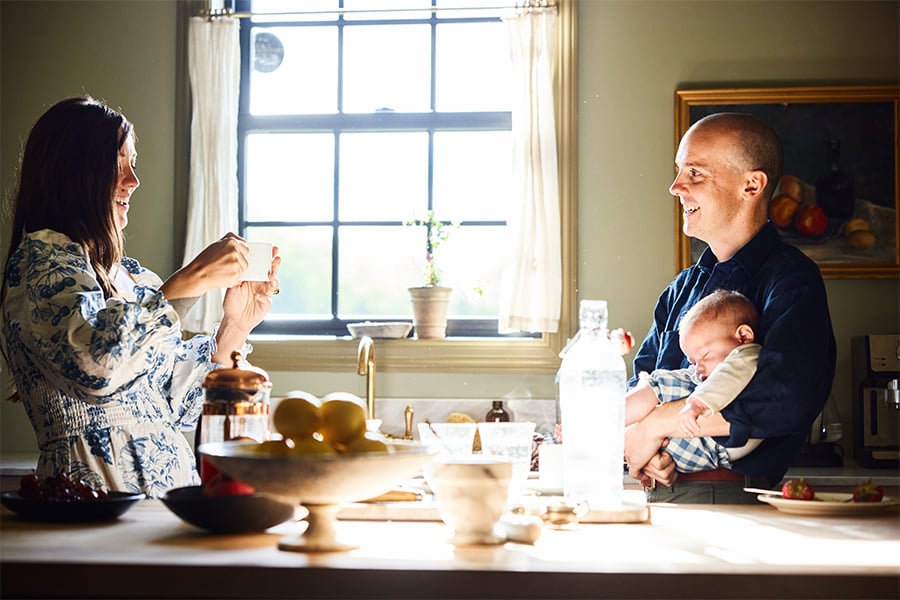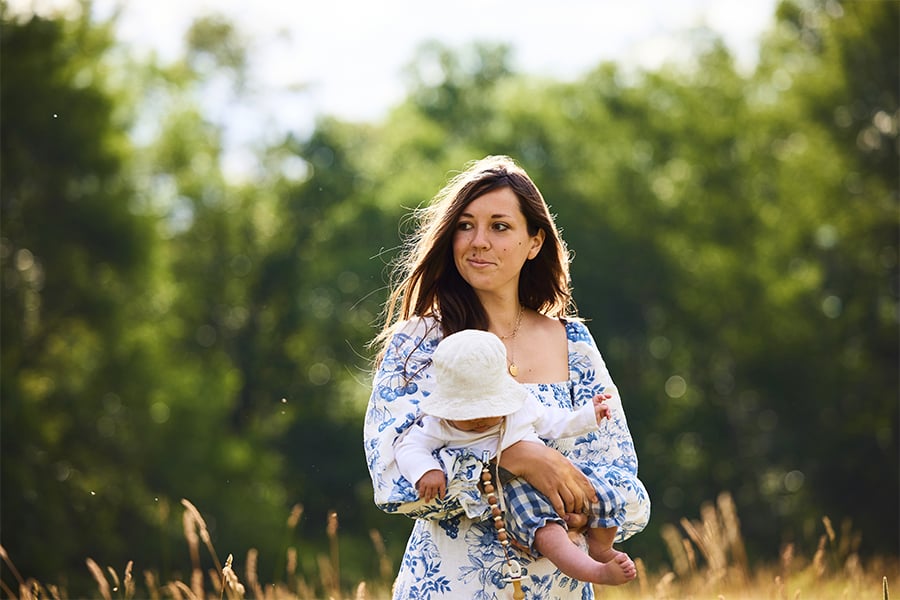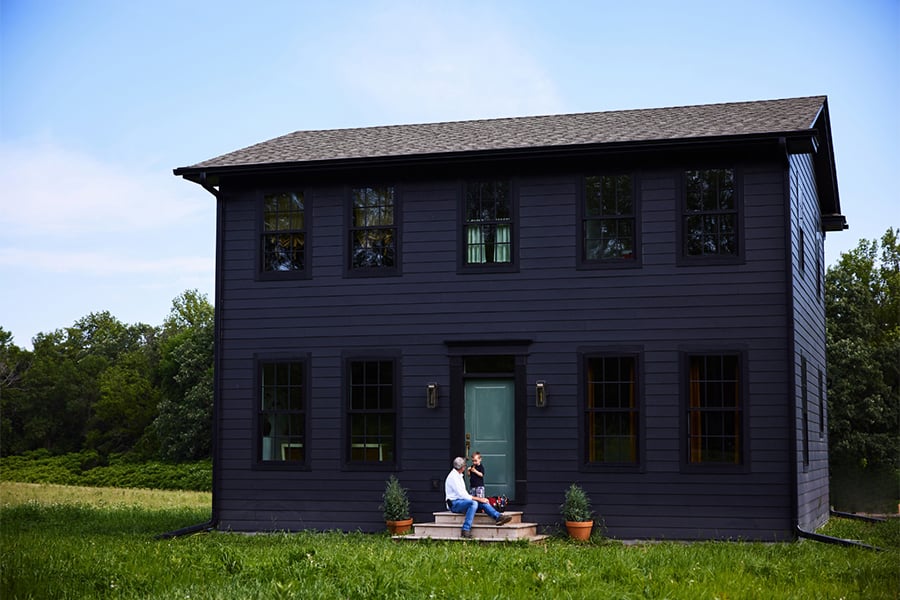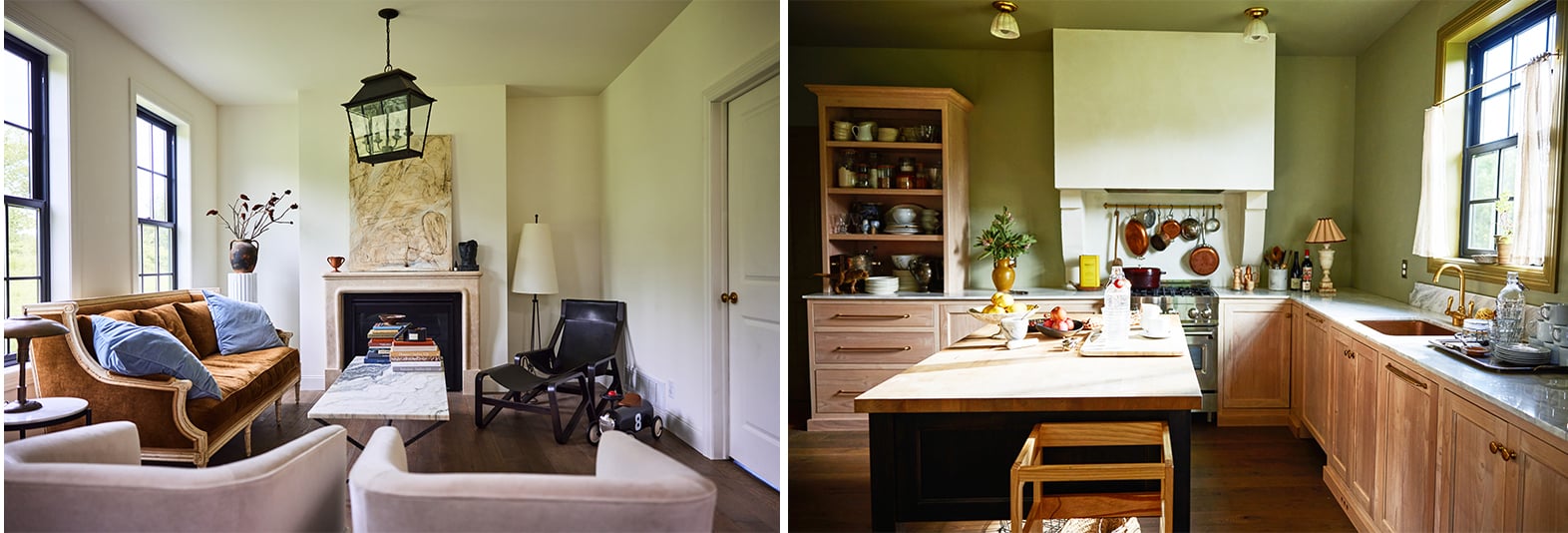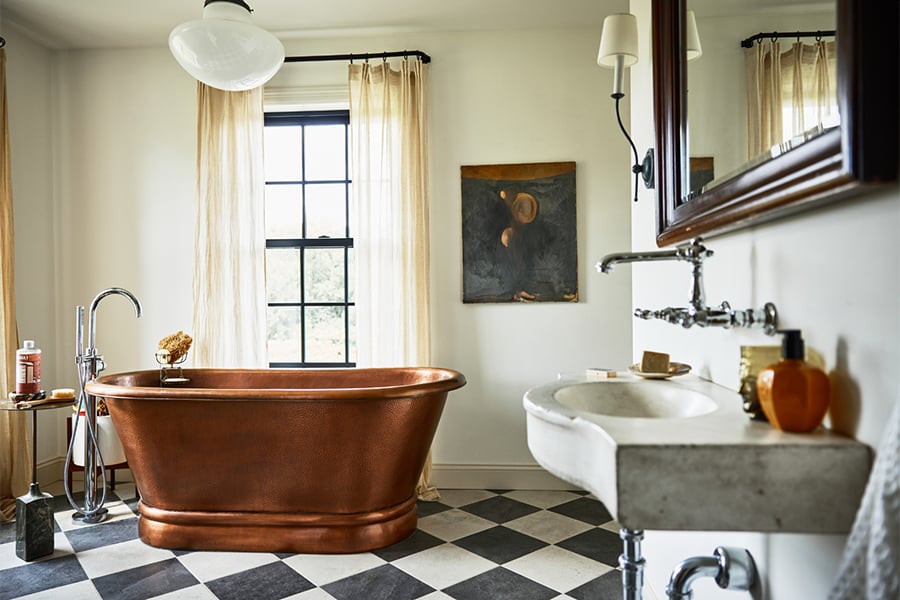Loading component...
It was spring 2020 and Carrie Valentine and Travis Stearns were quickly outgrowing their St. Paul, Minnesota condo. With the addition of their first child and the restrictions put in place by the burgeoning pandemic, the couple was ready to make a change. The problem? Everything in their price range was downright depressing. When their frustration came up in conversation with Travis’ father, Ted Stearns, he had a solution: I could build you a house, he told them, half in jest. But Valentine, who is an interior designer, had seen enough of Zillow to know that if the “beautiful, romantic” home she had in mind was to become a reality, they’d have to make it for themselves.
This is the story of how two generations came together to build a “fantasy farmhouse” they hope will someday be passed down to a third generation.
This is the story of how two generations came together to build a “fantasy farmhouse” they hope will someday be passed down to a third generation.

